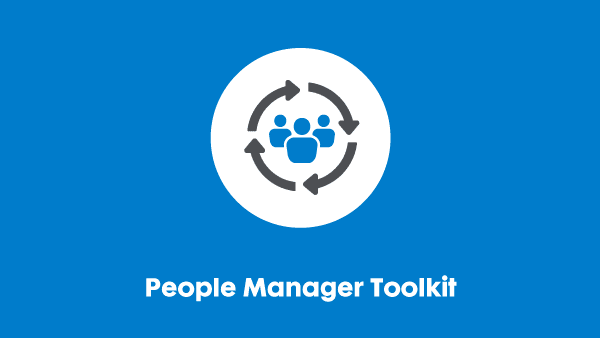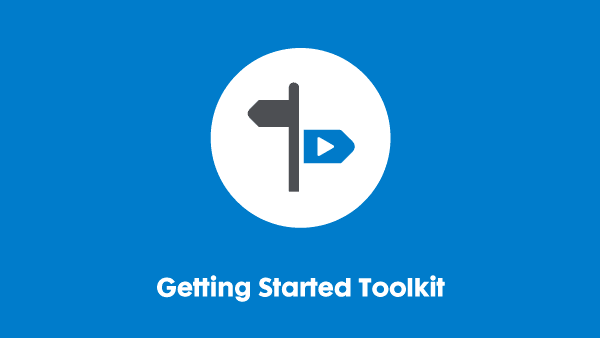Last updated: 4 April 2025
Factsheet – Diabetes

This resource is part of our Disability Essentials range. You can find the other free resources that are included in this range by clicking here.
What is diabetes?
Diabetes is the name for a group of diseases that cause a person to have high sugar levels in the blood. This can cause serious long term health conditions and complications if not identified and treated early.
Diabetes UK estimates that in the UK, someone is diagnosed with diabetes every 2 minutes.
There are several different types of diabetes, but the most common are Type 1 and Type 2.
Type 1
This is an autoimmune disorder affecting about 8% of those with diabetes in the UK. The cause of Type 1 diabetes is not known, but genetic susceptibility and environmental factors may have a role. Diet or lifestyle does not cause it.
Type 1 diabetes can develop rapidly over days or weeks and is treated with insulin.
Type 2
In this type of diabetes, the body either does not produce enough insulin or the body does not react properly to insulin. Genetic susceptibility and environmental factors are thought to be involved but lifestyle (diet, nutrition and exercise levels, for example) appears to be the most significant risk factor. It accounts for about 90% of the adult diabetes diagnoses in the UK.
Treatment requires lifestyle changes and usually medication. Some people with Type 2 diabetes will need insulin in the longer term.
Other types
Two common potentially reversible types of diabetes are:
- Gestational diabetes – this occurs during pregnancy and usually disappears soon after the baby is born.
- Pre-diabetes – This term describes the state when a person’s blood glucose levels are above the normal range but not high enough to be classed as diabetes. If left untreated, it will usually develop into Type 2 diabetes.
There are several other types of diabetes that are much rarer. Many of these are due to genetic factors; others can develop due to conditions that damage the pancreas, such as cystic fibrosis or pancreatic cancer. High and frequent doses of steroids – such as those used to treat other health conditions such as inflammatory bowel disease or arthritis – can also cause Type 2 diabetes.

How does diabetes affect an individual?
Once a person has been diagnosed with diabetes, they must keep their blood sugar levels within set parameters. This is to prevent the longer-term damage associated with the disease.
Long term complications
Diabetes can have some serious long-term health complications if it is not diagnosed early or well-controlled. Good management of the disease can be challenging for several reasons. The long-term complications resulting from late diagnosis and poor management include:
- heart disease
- nerve damage
- sight loss
- kidney problems
- circulation problems
- miscarriage
- amputation.
Hyperglycaemia (hypers)
This is when a person’s blood sugar levels are too high. The condition usually occurs gradually and for various reasons such as being unwell, feeling stressed, missed medication or a mismatch between medication, food and exercise. This should be identified and managed early if a person is regularly checking their blood sugars.
Hypoglycaemia (hypos)
A hypo is a serious complication of diabetes that can be potentially life-threatening if not treated promptly.
A hypo occurs when the blood sugar level is too low. There can happen quickly with little warning, but most people with diabetes can identify their warning signs and take early action. No two people will have the same signs or symptoms, but the most common are:
- trembling and shaking
- lack of concentration
- confusion and disorientation
- sweating, often profusely
- irritable or anxious
- aggression – this is usually due to confusion and fear
- appearing as if they are drunk
- tired and weak
- pallor
- tingly lips
- fast pulse
- hunger.
If left untreated, a hypo can quickly develop into unconsciousness and increase the risk of death.
What to do if someone is having a hypo?
Mild hypo
If you know the person has diabetes, you should advise them immediately if you suspect they are having a hypo. The person can then manage their blood sugar level by taking a sugary drink or food such as fruit juice, fizzy drink (not low sugar or sugar-free), glucose tablets or some sweets such as jelly babies. This should resolve their hypo quickly.
They should then be allowed to do their prescribed aftercare, which may involve eating a sandwich, for example, and testing their sugar levels. Most people with diabetes can spot the early signs themselves and manage their hypo quickly and easily themselves.
Severe hypo
If someone has a severe hypo, they may quickly become unconscious. If this happens, you should take the following action:
- Put the person into the recovery position to enable them to breathe.
- If you are not able to give glucagon, you should call an ambulance.
- If you have been trained how to give them a glucagon injection, you should do so.
- If you do give glucagon and the person does not start to recover quickly, or you have any concerns, you should call an ambulance.
- Never give anyone unconscious anything to eat or drink.
Potential impact on work
For most people, diabetes has minimal impact on their work.
The most significant impact on work is usually the need for time off to attend appointments. People newly diagnosed with diabetes will need more appointments than those who have well-controlled diabetes. These appointments are essential and will help the person manage their diabetes more successfully in the longer term. There are several routine appointments that people with diabetes have to attend, such as eye tests, feet checks and regular blood tests. Many of these are annual reviews and so should cause little disruption.
There may be circumstances when diabetes does significantly impact work either on a temporary or permanent basis — for example, recruitment restrictions to the Armed Forces.
The DVLA also has strict criteria and restrictions, though many of these are temporary. The rules mainly affect those who require insulin and drive large vehicles such as HGVs or buses. Each case is assessed individually.
Legal duties
The Equality Act 2010
In the UK, employers have duties to:
- Prevent discrimination, and
- Provide reasonable adjustments
for their disabled employees. This means that it is unlawful for employers to treat applicants, job candidates and employees unfavourably because of their disability.
The Equality Act also requires employers to make ‘reasonable adjustments’ for their disabled employees.
Suggested adjustments
- Provide a clean and private area, such as a first-aid room, for the person to test their blood sugar levels and inject their insulin. This should be available to contractors and visitors to the site too. Toilets are not appropriate places for this.
- In some workplaces, a person can’t keep their medication, testing kit and hypo treatments beside them and at a safe temperature. A safe and rapid-access place should be arranged for this. Examples where this may be an issue include constructions sites, labs, and some manufacturing sites.
- Some people, especially initially, have very strict times schedules for when they must take their medication. If this is the case, it should be factored into their work diary.
- The person may require set break times or sufficient warning of any changes to their work tasks and schedule. This is to enable the person to adapt their diabetes medication and management to protect them against hypos.
- If a person feels that they are starting to develop a hypo, they should leave their task, meeting, or desk and manage it without delay. It may be that the person has a ‘confidential signal’ with their manager or colleague that they can use to indicate this in situations such as meetings. This helps preserve their medical confidentiality.
- A person may need to take snacks to meetings or have them near them in case of hypos. This should be allowed wherever possible. Where it is not possible, for example for safety reasons such as lab work, other arrangements should be made.
- If a person advises that they have diabetes, it is good to discuss what they want you to do should they develop a hypo. You should also discuss with them if they wish to share their diagnosis to their team. Having a crisis plan and letting colleagues know is often very helpful. A diagnosis of diabetes should only be shared with the person’s consent.
- Staff training on essential diabetes management can be very useful and can allay many fears for the person and the team – only if the person with diabetes agrees.
- The physical demands of a role can affect the levels of insulin and food intake a person has. If there is a significant change to this, such as a training day instead of a demanding day of heavy maintenance work on-site, the person will likely need to adjust their medication levels. Where possible, give as much notice to task changes as possible.
- Many people with diabetes manage shift work with no problems. Occasionally a person may need to move to the day shift due to their diabetes on a temporary or permanent basis. Diabetes can be challenging to manage, no matter how diligent the person is. It will also change with time.
- Business travel can sometimes be challenging for people with diabetes, especially if travelling to different countries and time zones. With appropriate advance notice and planning, it should not prevent staff from doing this part of their work. Some countries and airlines will need a medical report detailing medication such as insulin pumps. Time allowances to arrange this should be accommodated. It is also vital that travel insurance companies are aware of any medical conditions, including diabetes, before travel.
- It is best practice to have policies and procedures that distinguish between sickness absence taken for a reason relating to a disability and general sickness absence. Disabled employees must not be treated less favourably than their colleagues for a reason relating to their disability.
Further information
For more information on suggested adjustments, specific barriers for diabetes and information about the law, please see our other resources in the Knowledge Hub.
For more detailed information and advice about a specific situation, contact the Advice Service: Tel: +44-20-7403-3020 |Textphone: +44-20-7403-0040 Email: advice@businessdisabilityforum.org.uk
Diabetes UK
Wells Lawrence House, 126 Back Church Lane, London E1 1FH
Web: www.diabetes.org.uk/
Email: helpline@diabetes.org.uk
Tel: 0345 123 2399
If you require this content in a different format, contact enquiries@businessdisabilityforum.org.uk.
© This resource and the information contained therein are subject to copyright and remain the property of the Business Disability Forum. They are for reference only and must not be copied or distributed without prior permission.

